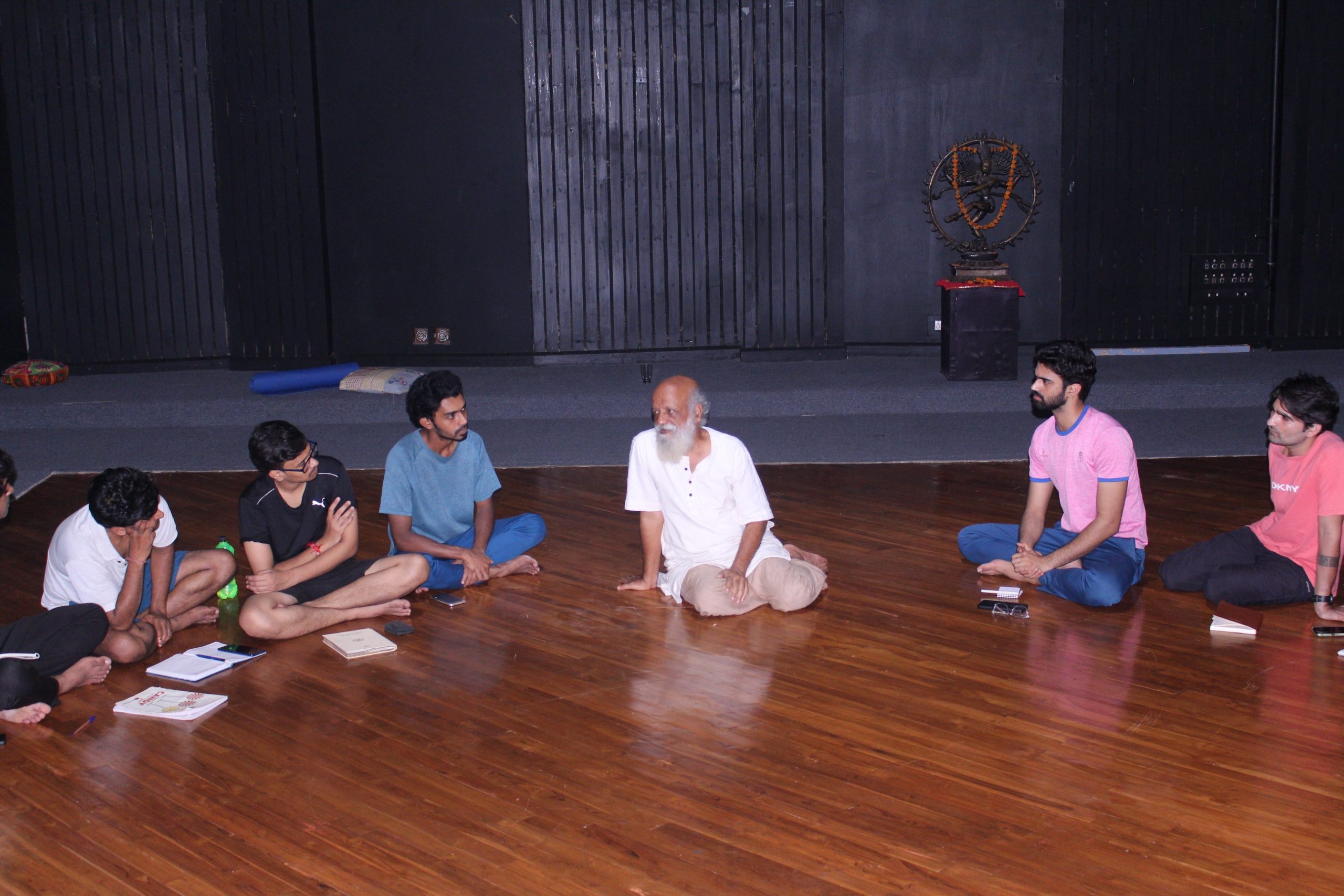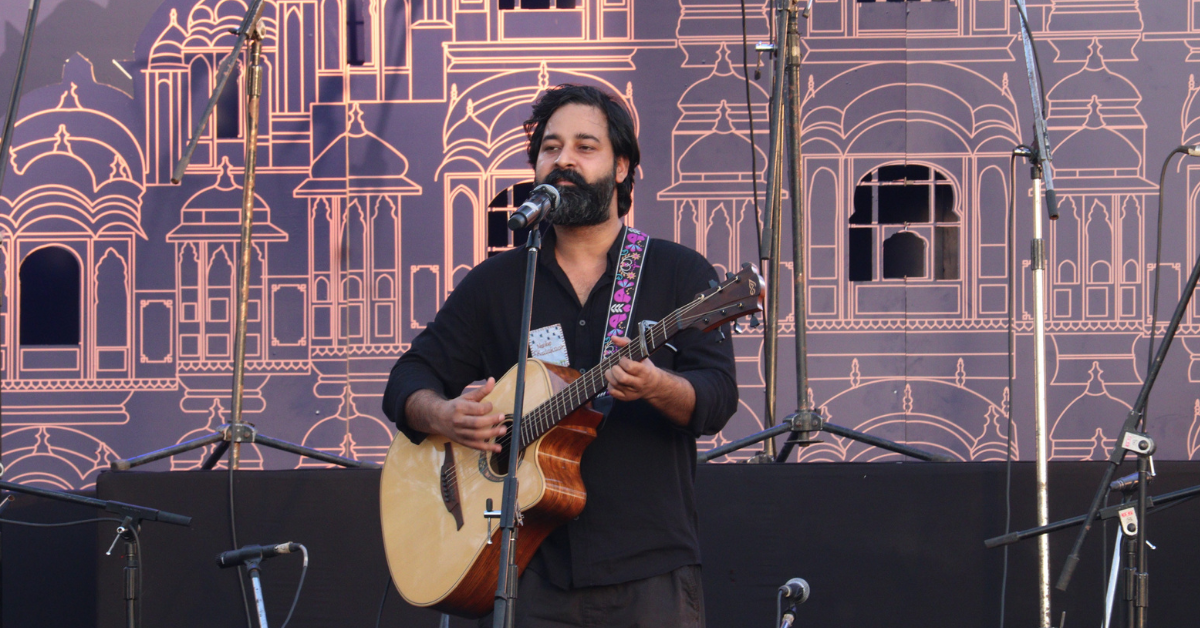The art and culture hub of the Pink City, Jawahar Kala Kendra is currently holding a 15-day extensive Actor Training workshop in which the participants are being trained in the various aspects of acting. As many as 30 participants between the ages 18 to 35 are being taught by 8 renowned theater and acting experts from across the country. The participants have also come from different states of the country like Rajasthan, Kerala, Delhi, Uttar Pradesh, Maharashtra, among others. The different aspects on which they are being trained include Indian Method in Acting, Voice and Acting, Psycho Physical Acting and even Chhau Dance.
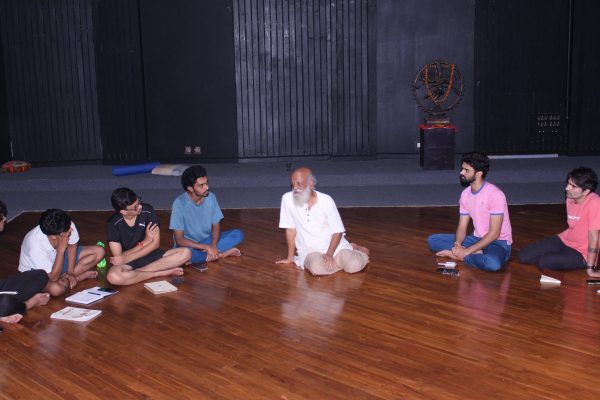
Chhau Dance for better Acting Skills
Chhau dance is a semi classical Indian dance with martial and folk traditions. Elaborating on the importance of teaching Chhau Dance for acting, Padmashri Shashadhar Acharya shares: “To become a complete actor, one needs to have knowledge of movement, music as well as rhythm. Most of the dance forms of India come from theater. Learning dance helps an actor to bring rhythm in their acting and flexibility to their body. They understand the concept of stage space in a better way and are also able to deliver their dialogues better with the core strength they get from dancing.”
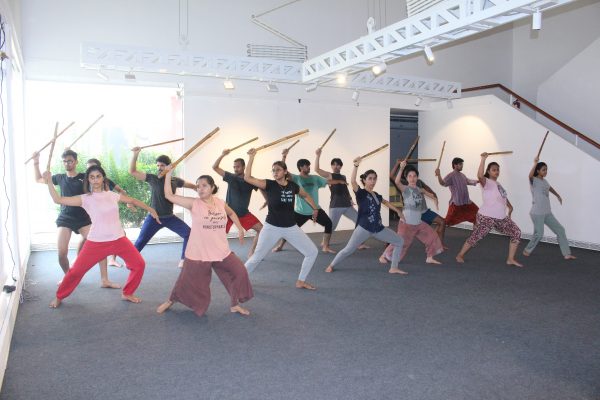
Padmashri Acharya, who is teaching Chhau dance for all the 15 days of the workshop, also highlighted the role of dance in overcoming the challenges of portraying a character in front of a live audience in theater. “To be an actor involves taking on someone else’s character and identity and performing a role from their perspective. For this one’s body and mind have to be in unison. Dance helps an actor to bring the body and mind together as it relaxes their senses”, he opines.
Bringing together the essence of Natya Shastra and Contemporary Acting
There is a clear dichotomy of Indian theater as Natya Shastra in the context of traditional theater and ‘Western’ theater in the contemporary context. To bring the essence of Natya Shastra and contemporary acting together, Sangeet Natak Akademi Awardee and theater expert, Prasanna, is teaching the students ‘Indian Method in Acting’ – a methodology he devised by putting together what he has learnt during teaching and directing over the years.
“In India, play, actor and audience are the three units in a performance. Whereas in the West, the audience is seen as “Peeping Tom”. The West tries to eulogize moral aspect of theater and believes that it should be morally correct and serious. While being morally correct is important for Indian theater also, it is not seen as a contravention of the playfulness of theater. The Indian Method of Acting tries to give to the world a more simple and sensible method of acting”, says Prasanna while throwing light on the genesis behind the Indian Method of Acting. This method does not make use of elaborate sets or costumes and moves away from ‘death’ being the focus as done in the great tragedies.
The Changing Landscape of Theater
The experts also shed light on the changes seen in theater in terms of participation, interest as well as the learning behaviour of aspiring actors. Prasanna shared that these days there is increasingly more participation of people from the deprived sections of the society in theater. “Many Dalits and women are now being seen in theater. People are ready to leave their cushy jobs to make a career in theater”, says Prasanna.
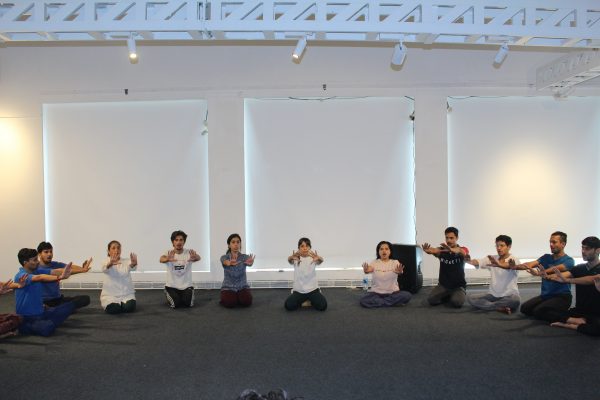
However, it is true that while films, serials and OTT get one quick money, employment and a stable income in theater remains a major hurdle. To tackle this problem, Prasanna suggests a ‘Theater-in-Education’ programme that should be implemented across the country. “It is the responsibility of the society to ensure that theater moves forward and the theater artistes get what is needed to stay in the art form”, adds the award-winning theater artiste.
The youth is in a rush to make it big
“We often get asked by students that how many days it would take them to learn acting. There is a need to change this perspective towards acting. Theater is a form of art which needs to be raised and moulded like a child. One should have patience and realize that theater is a full-time profession that you eat, breathe and sleep”, said Padmashri Acharya while talking about the learning behaviour of participants.
Tusharika Singh
Latest posts by Tusharika Singh (see all)
- Music experiences in the Pink City - January 11, 2025
- Jaipur Literature Festival 2025 Announces First List of Speakers for Landmark 18th Edition - December 3, 2024
- From Rejection to Recognition: Jaipur’s Abhishek Mudgal joins NSD as stage manager - December 2, 2024

